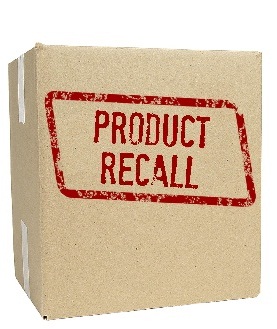
Recently risk managers and insurance brokers have seen an increase in calls from manufacturers on product recall coverage and slotting fees. The Food and Drug Administration (FDA) has been cracking down on manufacturers with the Food Safety Act of 2011, which gave power to the FDA to shut down a plant down and require a manufacture to conduct a recall without a cause of loss.
Most recalls are triggered by a cause of loss, which can be any number of things. For example a personal injury or the potential of personal injury that could be a result of a minor mistake like the miss-labeling of packaging or as major as a bacteria outbreak. However, now the FDA is pushing for recalls without a cause of loss and manufacturers are scrambling.
Every manufacturer knows recalls can be expensive and if you don’t have a recall policy, then the expenses of a recall are born upon your financials. The good news is if you bought a recall policy then most expenses related to the cost of the recall are covered.
Most stand alone recall polices will cover additional labor expenses, costs of media notifications, additional warehousing, and product destruction costs. However, what is usually not covered is the loss of profit, third party expenses, and slotting fees due to contractual obligations.
We recently assisted a client with a recall and guided them through negotiating their slotting fees. The devil is in the details when it comes to contractual obligations.
We started with helping our client identify who they had contractual obligations with and analyzed those contracts for financial obligations which could have caused a significant financial strain for our client. One large retail store in particular stipulated that if our client caused them to incur vacant space on their shelves, that our client would be financially liable for the vacant space. The question at hand was who was going to fill that space, and the costs associated with filling that space.
This large retailer had a clause in their contract which stipulated that the manufacturer would have to pay the retailer $10,000 per store for those slotting fee expenses! With our guidance, our client was able to negotiate a global slotting fee settlement, instead of the per store allocation cost.
Thankfully, our client did have slotting fee coverage on their recall policy. Having this additional coverage, along with negotiating a global slotting fee settlement, allowed more coverage limit for loss of profit due to the recall.
Our advice to manufacturers is to review your contracts with both vendors and retailers for obligations. Then review your coverage considerations during your product recall policy renewal. We hope this helps you control any upfront and potential backside costs if and when you experience a recall.
This piece was written by Pete Picetti, Senior Vice President and Food Manufacturing Team Lead. Connect with him onLinkedIn here or send an email to peterp@heffins.com
